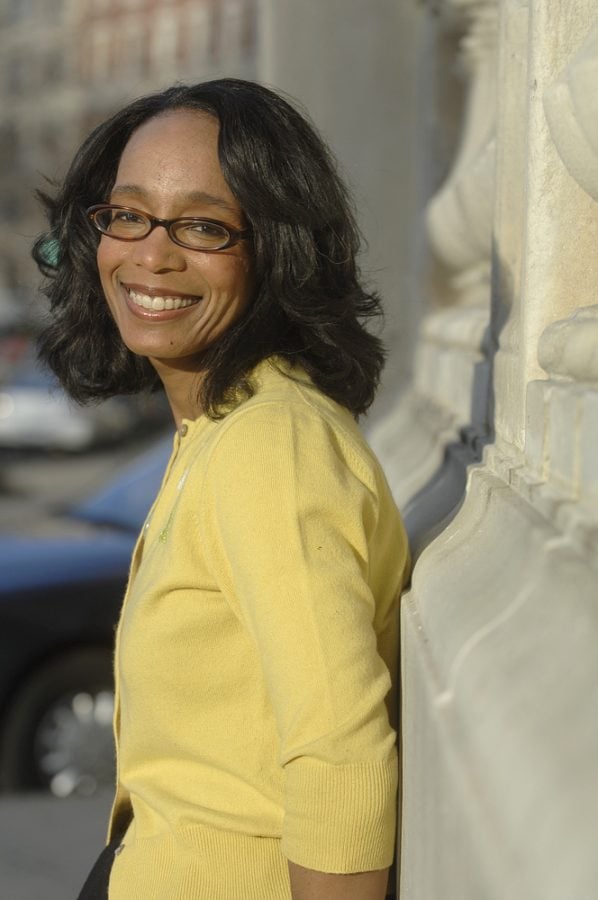Robin Givhan talks challenges as a POC journalist
Robin Givhan is the Fashion critic for The Washington Post. She received her masters in journalism at University of Michigan in 1988. Her first newspaper job was with the Detroit Free Press.
In 2006, Givhan was awarded the Pulitzer Prize for Criticism. After working at The Washington Post for some time, in 2010, Givhan joined The Daily Beast and Newsweek as a fashion critic and correspondent. In 2014, Givhan returned to The Washington Post.
In an interview with Guilfordian staff writer Precious Adisa, Givhan talks about ethical challenges as a journalist, being a woman of color in the fashion world and offers advice for students studying journalism.
Adisa: What came first, wanting to be a journalist or an interest in the fashion industry?
Givhan: It was the interest in journalism and really loving to write. That was really how I ended up in this path. I went to graduate school for journalism and eventually down my way into covering the fashion industry.
Adisa: How did you decide to become a fashion editor for The Washington Post?
Givhan: I’ve been writing about covering the fashion industry for a newspaper in Detroit; the Detroit Free Press, and at one point, The Washington Post was looking to replace its fashion editor. A friend, a photographer, encouraged me to think about applying for the job. I sent them samples of my writing and that got the ball rolling.
Adisa: What is the toughest assignment you’ve ever had to complete as a journalist?
Givhan: Well that’s a tricky question to answer because different stories are challenging for different reasons. I mean this wasn’t at all related to fashion but you know during 9/11, I was in New York because there was Fashion Week. Helping to cover that event was certainly challenging because there were so many unknowns. It was overwhelming, and it was, in many cases, interviewing people at their worst moment.
Adisa: On a different note, last night I was looking through some of the articles that you wrote for The Washington Post. I noticed you have an opinion when it comes to the Kardashians and representing fashion. I just wanted to know, do you ever get scrutinized for voicing your opinion on issues like that?
Givhan: I think a lot of the most recent pieces you read were runway reports, which are reviews. Certainly, there have been times when a designer has been disappointed that the review hasn’t been positive. I do think that most of them feel that criticism is not personal and is explained even if it can be difficult to take. You have to be as honest as you can be in the review. Otherwise, I don’t think that the review’s worth very much.
Adisa: On a lighter note, congratulations on being the first fashion writer to receive the Pulitzer Prize for Criticism. How did it feel winning that award, and what did it mean for you?
Givhan: It was an incredible feeling, it was exciting, humbling and amazing. It also meant a lot to have other colleagues who cover the fashion industry so enthusiastic. It meant something positive not just for me, but for everyone who covers the fashion industry, for fashion to be seen as something as culturally relevant as film, music or the visual arts.
Adisa: What do you think winning the award or the fashion editing industry in journalism means for women of color?
Givhan: There are cases when I walk into a room, and I’m the only black woman there. It’s would be highly unusual for me to be the only woman. But there definitely is not as much representation of people of color within the fashion world as there should be simply based on the percentages of people of color in the world. I think that while the broader realms of journalism are more diverse, the specific group of people who cover fashion is not as diverse.
Some of that has to do with the fact that for a very long time, the road to becoming an editor or creative director of magazines often began with perhaps an internship with one of those magazines. It’s a challenge for a lot of students of color because these magazines are in New York. It’s very expensive to live there, and the internships and magazines generally would not pay.
Adisa: What is an accomplishment you are most proud of?
Givhan: I’d say I’ve done my job with integrity.
Adisa: What advice would you give to journalism students looking to become fashion editors/ critics in terms of ethics and what they should be affiliated with?
Givhan: In general, you are doing this for the reader. Your story should inform them, delight them or surprise them. Your audience is that general reader out there. It’s not the institution that you are writing about, it’s not the designer you are profiling. I think if you remember that, it would help guide you on the types of questions you ask, it will help shape the writing and it will also serve as a reminder that your mission is, in many ways, it’s a privilege for you to be there and to be respectful of that.









Walter Hassell • Apr 19, 2017 at 11:57 am
Challenges as a POC journalist? Ah, I’m guessing that, like the other article this week about dangers to journalists, her life is somehow in danger. No? That’s not it? It’s simply that there aren’t enough people who LOOK like her in her profession, in her opinion? How troubling.